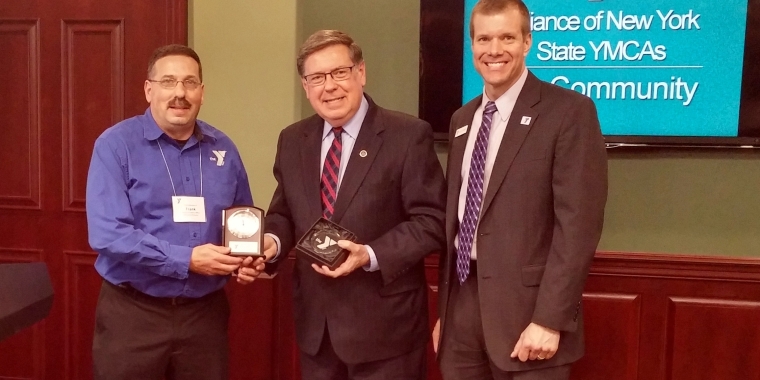
Seward Announces $200k For Cortland Med
Senator James L. Seward (R/C/I-Milford) today announced a $200,000 senate funding initiative for two programs at Cortland Regional Medical Center in Cortland. Seward unveiled the senate grant at a ceremony in Cortland today, joined by hospital and local officials.
The funding will support the center's cancer registry and medication bar coding programs.
"Cortland Regional Medical Center works hard every day to provide quality health care to the people of this area," Senator Seward said. "They strive to be on the cutting edge of advances in patient care and medical technology, and the senate grant I've announced today will be another step forward in offering their patients an improved quality of life and better health choices. I salute the administration, the medical staff, and their employees for their daily reach to excellence."
"I thank Senator Seward for assisting Cortland Regional Medical Center in our mission: to provide quality health care with skill and compassion, meeting the lifelong health care needs of the citizens of Cortland and the surrounding area. Senator Seward has been a good friend of Cortland Regional Medical Center and has worked to ensure the availability, accessibility and affordability of health care in our area. We are grateful for his strong support in a time of competing budget demands," CRMC President and CEO Brian Mitteer said.
The senate initiative will support staffing for two of the center's medical programs.
Cancer Registry: In November 2006, Cortland Regional Medical Center began a cancer registry program. Information will be used for research as well as public health planning and evaluation. Staffing needs include abstracting relevant information from each patient’s medical record, analyzing all records of discharged patients to ensure compliance with regulatory requirements, and implementing and monitoring the Commission on Cancer standards. The senate funding will maintain staff and ensure highly accurate and timely data submission.
Medication Bar Coding
: The center has initiated a program to match bar codes on medications to codes on patients' wrist bands to ensure patient safety and to decrease medical errors. Administration is documented in the electronic medical record. The addition of pharmacy staff for direct patient care will allow the pharmacy director to devote time necessary to address the complex technical issues in preparing and maintaining the bar code scanning system. The overall goal of this endeavor is to increase patient safety by decreasing frequency of medication errors. The senate funds were included in the 2007-2008 state budget.

